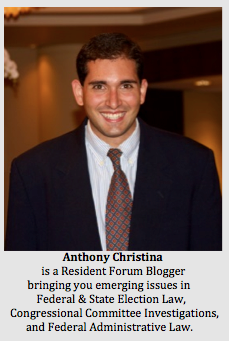The use of a private email server for official and personal business by democratic presidential candidate Hillary Clinton while at the Department of State has evolved into a political and legal quagmire of its own right. The use of the private email server originally came to light from an investigation into her conduct and knowledge of the Libyan embassy attack by the U.S. House of Representatives Select Committee On Benghazi.
In addition to the empaneled House Select Committee, former Secretary of State Clinton faces an active investigation by the Federal Bureau of Investigation’s Counterintelligence Division into her allegedly unlawful use of a private server. While Clinton’s lies about her awareness of these emails and their subsequent preservation may be cause for additional criminal charges, the central probe into her conduct surrounds her handling of classified information. The basis for the investigation is the fact that Clinton sent and received classified information via email on a private, non-governmental server while she was serving as Secretary of State. Strict laws govern the accessing and storage of classified government information. Clinton’s primary defense has been that she was unaware of their classification at the time the emails were sent or received.
There are over 4,500 criminal statutes in the United States Code according to a 2008 study by retired Louisiana State University law professor John Baker. However U.S. Attorney’s and the Department of Justice readily charge most white collar, non-violent offenses from a select pool of federal statutes, with the most prominent being: Conspiracy, False Statements, Money Laundering, Obstruction, Perjury, Mail Fraud, Wire Fraud, Bank Fraud, and Tax Evasion. The crimes that Hillary Clinton may have committed are more obscure but no less serious.
In a recent article in the New York Post, former Attorney General of the Commonwealth of Virginia, Ken Cuccinelli put forth the theory that Hillary Clinton could face the same criminal charge which CIA Director General David Petraeus pled to after it was revealed that he improperly shared classified information with his biographer. The misdemeanor charge—a violation of 18 U.S.C. § 1924—is for Unauthorized Removal and Retention of Classified Documents or Materials. The statute is violated when:
[A]n officer, employee, contractor, or consultant of the United States, . . . by virtue of his office, employment, position, or contract, becomes possessed of documents or materials containing classified information of the United States, knowingly removes such documents or materials without authority and [does so] with the intent to retain such documents or materials at an unauthorized location.
To convict Clinton, it must be shown that she had knowledge that classified emails were contained on her private server. The most recent total by the State Department of their review of 30,000 Clinton emails indicates that at least 671 emails sent or received by Clinton contained classified information. This fact stands in stark contrast to the statement Clinton gave to reporters in July when she said, “I am confident that I have never sent nor received any information that was classified at the time it was sent and received.”
According to an October 16th Fox News report, the FBI is also looking to see if Clinton committed ‘gross negligence’ under the Espionage Act for failure to keep national defense information safe. 18 U.S.C. § 793 Subsection F sets forth the following:
Whoever, being entrusted with or having lawful possession or control of any document, writing, code book, signal book, sketch, photograph, photographic negative, blueprint, plan, map, model, instrument, appliance, note, or information, relating to the national defense, (1) through gross negligence permits the same to be removed from its proper place of custody or delivered to anyone in violation of his trust, or to be lost, stolen, abstracted, or destroyed, or (2) having knowledge that the same has been illegally removed from its proper place of custody or delivered to anyone in violation of its trust, or lost, or stolen, abstracted, or destroyed, and fails to make prompt report of such loss, theft, abstraction, or destruction to his superior officer—
Shall be fined under this title or imprisoned not more than ten years, or both.
Notably, the information doesn’t necessarily have to be marked as classified to violate the statute. The article cited an intelligence community source who spoke on the condition of anonymity. The intelligence source said “the subsection requires the ‘lawful possession’ of national defense information by a security clearance holder who ‘through gross negligence,’ such as the use of an unsecure computer network, permits the material to be removed or abstracted from its proper, secure location.”
Secretary Clinton has maintained that the use of a private server was permitted at the time by State Department IT procedures, and the so-called ‘classified information’ in question was not classified at the time, but later upgraded by agencies. Clinton has also contended that the emails she sent and received did not contain any classification markings. Defense attorney Edward MacMahon Jr. has disputed that defense saying, “The fact that something’s not marked or that the person may not know that it was classified would not be relevant at all in a prosecution under the Espionage Act.” While the investigations are ongoing, Hillary Clinton’s actions at this time seem to have taken a back seat to the media frenzy over the Benghazi scandal and her candidacy for president.
While Clinton’s potential legal liability for her actions may be minimal, the possible political ramifications for her couldn’t be greater given the Iowa Caucuses are less than three months away. The investigation now rests in the hands of the FBI and the Obama Administration Justice Department. Stay tuned.
Published November 17, 2015
